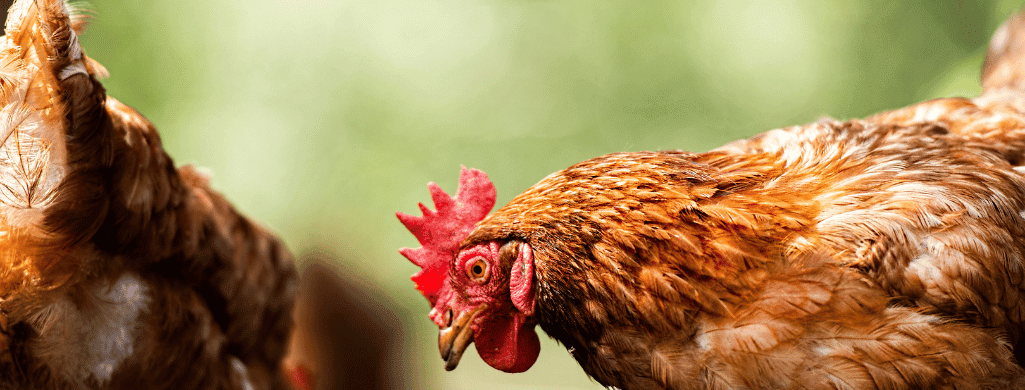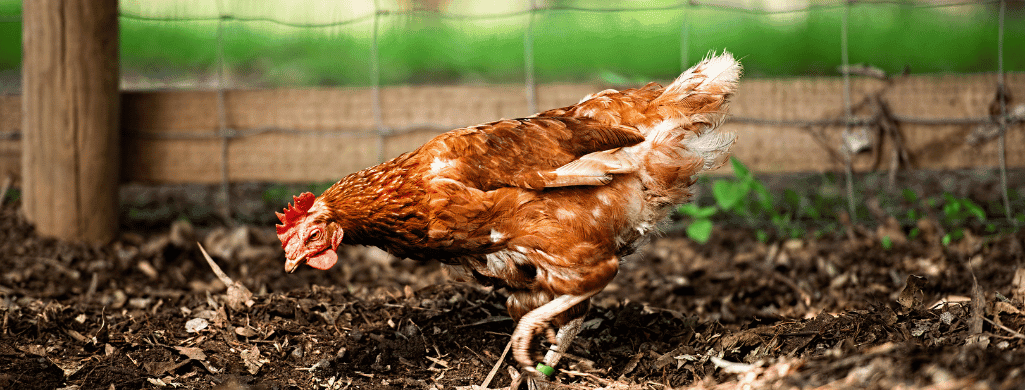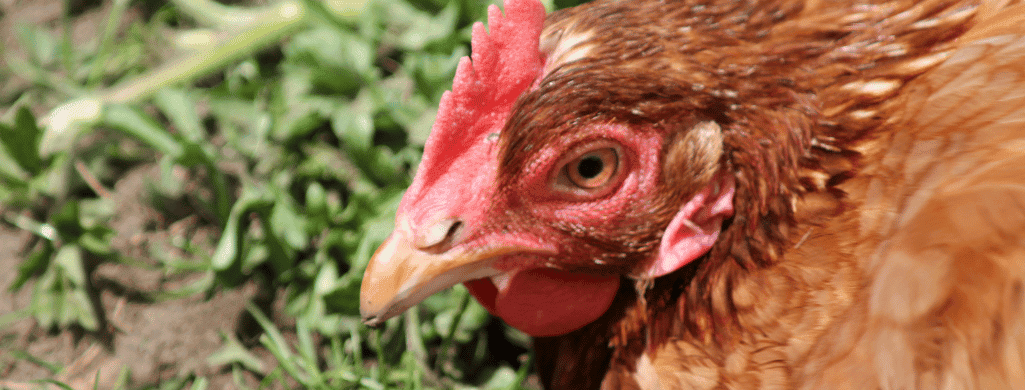ISA Brown chickens are bred for optimum egg production.
These hardy birds lay an average of 300 large brown eggs per year.
The commercial egg industry values ISA Browns for their high egg yield.
ISA Brown chickens are also popular among backyard chicken keepers because of their docile nature.
But do ISA Browns go clucky?
Since ISA Browns are bred as commercial layers, they rarely go broody. ISA Browns raised in backyard chicken coops are more likely to go broody than commercial layer strains. When ISA Brown hens get the chance to raise baby chicks, they are excellent mothers.

Table of Contents
ToggleHow To Know if Your ISA Brown is Broody
Broody hens have several ways of letting you know they are ready to raise baby chicks.
The first clue is a change in your ISA Brown’s friendly demeanor. A broody hen may growl or peck your hand when you attempt to remove eggs from her nest.
Read more on aggression in ISA Brown chickens.
This sudden attitude change is your ISA Brown hen’s way of telling you to stay away from her nest.
Another sign of broodiness is your hen’s refusal to leave her nesting box. The hen guards her eggs around the clock except for short breaks to eat and go to the bathroom.
The ISA Brown hen makes herself appear larger by fluffing her body and tail feathers. Her larger appearance intimidates other chickens and keeps them away from her eggs.
She will run straight back to her eggs if you attempt to remove a broody hen from the nesting box.
Your ISA Brown hen may have a ragged appearance due to feather loss.
Related Post: When Do ISA Brown Chickens Molt?
She plucks feathers from her chest as she builds the nest. These feathers insulate the eggs to keep them warm for hatching.
The most notable sign your ISA Brown hen is broody is she stops laying eggs.
When a hen lays her clutch of eggs, she will not produce any more eggs until her chicks hatch.
This broody behavior will last at least three weeks, as it takes an average of 21 days for the eggs to hatch.
Check out our guide to ISA Brown chicken eggs and everything you need to know.
What To Do if Your ISA Brown Goes Clucky

If you do not want your ISA Brown to stop laying eggs, you must break her of the broody behavior.
To stop a hen from being clucky, you must isolate her from the rest of the flock.
Place the broody ISA Brown hen in an elevated cage without any bedding. The lack of bedding discourages the hen from laying eggs and nesting.
Provide your hen with plenty of food and water, and check on her to ensure she is well.
After three days, return your hen to the chicken coop. You must repeat the process if she runs back to her nesting box.
Never separate your broody hen from the flock for more than three days at a time.
If you want to give your broody girl a chance to hatch her eggs, leave her alone.
Place food and water nearby to ensure she receives enough nutrients for healthy chicks.
Your laying hens should already be on a high-protein layer feed. The protein boost promotes healthy growth and helps your hen maintain feather production.
Calcium supplements are also necessary for strong shell development. Crushed oyster shells are an excellent source of calcium.
It takes a lot of energy for hens to lay eggs; without proper nutrition, they may become malnourished.
How Often Do ISA Brown Hens Lay Eggs?
ISA Brown chickens begin laying eggs when they are 20-22 weeks of age.
Each ISA Brown hen lays about six eggs per week, for an average of 300 large-size brown eggs per year.
Other hen breeds stop laying in the winter because it is not ideal for raising chicks. Since ISA Browns are rarely broody, the hens continue to lay eggs in the cooler months.
Unfortunately, these hard-working girls are prone to reproductive issues.
Laying lots of eggs is hard on an ISA Brown’s reproductive system. Problems like prolapse and egg-binding are common in ISA Brown hens.
Kidney stones are also a common health issue in ISA Brown hens due to the extra protein levels in their diet.
There is a significant decrease in egg production when ISA Brown hens reach two years of age. This is mostly due to their shortened lifespan.
Many ISA Brown hens raised in commercial environments only live for 2-3 years. ISA Browns raised in backyard flocks may live up to five years with proper care.
Related Post: ISA Brown And Hyline Chicken Differences
Can You Incubate ISA Brown Eggs?

Breeding ISA Brown chickens is very challenging. ISA Brown hens are such prolific layers there is rarely ample time for breeding.
If you have a rooster in your flock, you may be interested in incubating your hen’s eggs.
Many poultry breeders advise against incubating eggs from ISA Brown hens.
ISA Browns are a hybrid chicken breed. This means their best traits may not be passed down to their offspring.
More often than not, the chicks are born with genetic defects.
Another issue is the timing of breeding ISA Brown chickens.
When you breed ISA Brown hens too early, the egg shells may be too dense for the chicks to breathe. Breed the hens too late, and the egg shells are too thin to produce healthy chicks.
If you successfully incubate ISA Brown eggs in a commercial-style incubator, sexing the chicks is easy.
Unlike other brown chickens like Rhode Island Reds, ISA Browns have sex-linked genetics.
Sex-linked genes allow you to tell the sex of baby ISA Brown chicks as soon as they are born.
Female chicks are light brown with white speckles. Male ISA Brown chicks are the opposite, with white feathers and brown speckles.
It is better to buy ISA Brown chicks from a reputable breeder.
ISA Browns: Not So Clucky
ISA Brown hens are prolific egg layers, so they rarely go clucky.
If your ISA Brown hen does become broody, ensure she has everything she needs to stay healthy.
Breaking broody behavior in ISA Brown hens is not difficult if you do not want to interrupt egg production.
Be aware of the reproductive complications your ISA Brown hen may face. Prolapse, egg-binding, and kidney problems are all health issues requiring immediate attention.
How useful was this post?
Click on a star to rate it!
We are sorry that this post was not useful for you!
Let us improve this post!
Tell us how we can improve this post?
